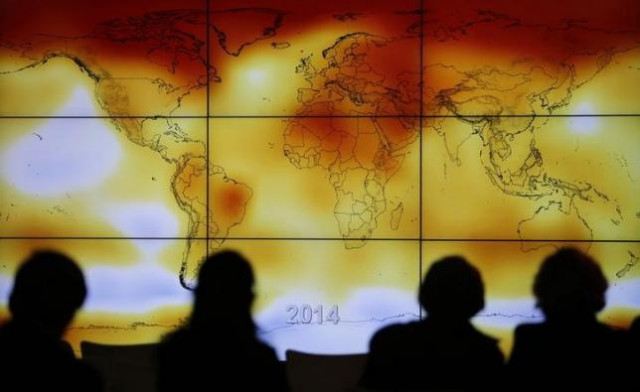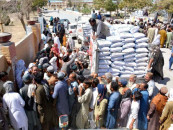Climate hazards: China urged to develop early warning system
Pakistan will suggest ways to reduce trade losses caused by extreme weather

PHOTO: REUTERS
Climate change: SAARC countries must work together to mitigate impacts
Dr Ghulam Rasul, the chief of Pakistan Meteorological Department, said China had organised the International Science Forum of National Scientific Organisations in Beijing earlier this month, which saw participation of 36 heads of Asian and European scientific organisations.
During the conference, he said, Pakistan had urged China to develop a multi-hazard early warning system in areas vulnerable to climate hazards such as tsunamis, flashfloods, landslides, earthquakes, fog, tropical cyclones and dust storms.
He said Pakistan had also called for strengthening weather and climate data network, besides improving financial cooperation and sharing skill and technology-based knowledge among member states.

“These measures will help Beijing to reduce trade and human losses on the route,” he said.
India, he said, had also attended the conference and supported proposals suggested by Pakistan.
Dr Rasul pointed out that the Gwadar port was vulnerable to cyclones and tsunamis while other areas in Balochistan were at risk of strong sand and windstorms and areas in the north faced risks of flashfloods, landslides and snowstorms.
Citing various studies, he said Pakistan was among countries highly vulnerable to climate change. Over the past few years, various areas of the country had witnessed rapid weather shifts, he added.
Monsoon, he said, had become highly unpredictable, and the country witnessed floods in one province and drought in another simultaneously.
Climate change: Paris Agreement comes into force
“The water flow in the Indus River is becoming highly erratic,” he said. “In Pakistan, more than 70 per cent of natural disasters [extreme weather events] are associated with the monsoon season,” he said.
‘One Belt, One Road’ is among China’s most important initiatives aimed at building the global infrastructure for boosting trade and relations with Asian, Central Asian and European countries.
After its completion, the initiative would directly benefit at least 4.4 billion people or 63 per cent of the global population with a combined GDP of $21 trillion, accounting for 29 per cent of the world’s wealth.
Published in The Express Tribune, November 29th, 2016.



















COMMENTS
Comments are moderated and generally will be posted if they are on-topic and not abusive.
For more information, please see our Comments FAQ